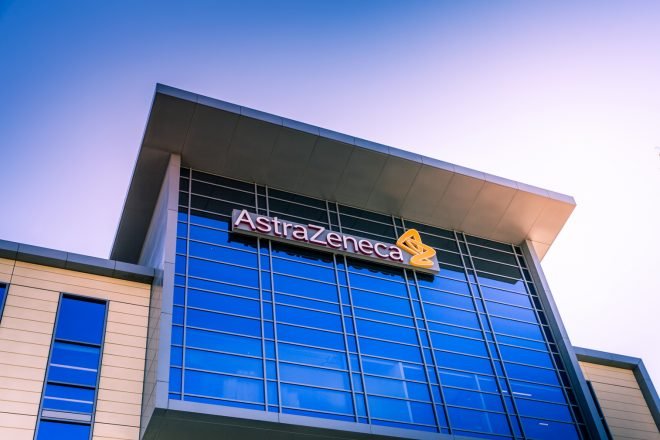Advertisment
Long-term data from PACIFIC phase III trial at ASCO showed 33% of NSCLC patients remained progression-free at five years – AstraZeneca

Updated results from the positive PACIFIC Phase III trial showed AstraZeneca’s Imfinzi (durvalumab) demonstrated a sustained, clinically meaningful overall survival (OS) and progression-free survival (PFS) benefit at five years in patients with unresectable, Stage III non-small cell lung cancer (NSCLC) who had not progressed following concurrent chemoradiation therapy (CRT).
Results from the updated post-hoc analyses showed an estimated five-year OS rate of 42.9% for patients treated with Imfinzi versus 33.4% for those on placebo after CRT. Median OS was 47.5 months for Imfinzi versus 29.1 for placebo. Following a maximum treatment course of one year, an estimated 33.1% of patients treated with Imfinzi had not progressed five years after enrolment versus 19% for placebo. These results build on the primary PFS and OS analyses published in The New England Journal of Medicine in 2017 and 2018, which demonstrated a sustained, significant benefit with Imfinzi for these primary endpoints.
In the primary OS analysis of the PACIFIC Phase III trial, the most common adverse events (AEs) (greater than or equal to 20%) among patients treated with Imfinzi versus placebo were cough (35.2% versus 25.2%), fatigue (24.0% versus 20.5%), dyspnoea (22.3% versus 23.9%) and radiation pneumonitis (20.2% versus 15.8%). A grade 3 or 4 AE was experienced by 30.5% of patients treated with Imfinzi versus 26.1% for placebo, and 15.4% of patients discontinued treatment due to AEs with Imfinzi versus 9.8% for placebo.These results were presented on 4 June during the 2021 American Society of Clinical Oncology (ASCO) Annual Meeting..





